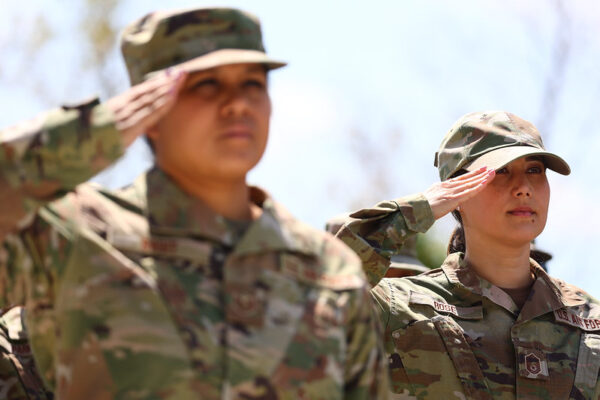
(Photo: Staff Sgt. Crystal Housman, U.S. Air National Guard)
The increase in women seeking mental health support at Veterans Administration hospitals in recent years has shed light on the unique challenges Women Veterans face. Unfortunately, many healthcare providers are ill-prepared to address these needs due to a lack of infrastructure focused on women’s health.
However, efforts are underway to address this and provide essential mental health resources to Women Veterans.
Understanding the Mental Health Challenges
Women Veterans experience a range of mental health challenges, including Post-Traumatic Stress Disorder (PTSD), depression, and eating disorders, at higher rates than their male counterparts. Factors such as combat-related stress and Military Sexual Trauma, or MST, contribute significantly to the development of mental health issues in Women Veterans.
MST, in particular, affects a significant number of Women Veterans, with rates exceeding those of their male counterparts.
Obstacles to Seeking Help
Women Veterans tend to internalize their struggles, often waiting until they feel overwhelmed before seeking help. This behavior stems from their military training, where independence and self-reliance are highly valued. Additionally, studies have shown that women tend to blame themselves when things go wrong, leading to detrimental thought patterns and self-perception. These factors contribute to increased rates of PTSD, depression, and other mental disorders among Women Veterans.
PTSD Symptoms in Women Veterans
Post-Traumatic Stress Disorder is a significant concern for Women Veterans, with nearly 12% experiencing symptoms, almost double the rate of their male counterparts, according to the American Journal of Preventive Medicine.
PTSD symptoms in Women Veterans can manifest in various ways, including hyperarousal (anger, irritability, panic), re-experiencing traumatic events (flashbacks, intrusive memories), and emotional numbness (detachment, loss of interest). It is important to acknowledge and address these symptoms, as they can have severe effects on Women Veterans’ lives.
Importance of Gender-Specific Care
Women Veterans face unique challenges that often go unnoticed, and finding appropriate mental health resources can be a difficult task. Recognizing the distinct challenges faced by Women Veterans is essential to provide gender-specific care and resources.
Studies have shown that PTSD in Women Veterans has different causes and effects compared to their male counterparts. A September 2022 report from the VA showed a decline in the age-adjusted suicide rate among Women Veterans, emphasizing the importance of recognizing and addressing their unique mental health challenges. To ensure effective treatment, it is important to understand the specific needs and experiences of women in the military.
Available Resources
Government resources such as Military OneSource, Center for Women Veterans, or CWV; and the National Resource Directory offer support to Women Veterans. Military OneSource provides transitioning peer support and financial counseling, while CWV offers counseling, healthcare, and a call center to help with available benefits. The National Resource Directory connects women Veterans with local and state groups.
Non-government resources and online social media groups, like the Women’s Veterans Alliance, provide additional support and opportunities for engagement. The Women’s Veterans Alliance organizes conferences and hosts online communities to facilitate connections among women Veterans. The nonprofit organization, The Mission Continues, helps connect veterans nationwide, fostering a supportive network.
The American Legion can also help connect Women Veterans with support.
Progress and the Way Forward
Efforts to address the mental health needs of Women Veterans have yielded positive results. Despite these advancements, more work is needed to bridge the existing gaps. Increasing participation in VA studies and treatments, training healthcare providers to inquire about military service, and expanding gender-specific programs are important steps toward better mental health care for Women Veterans.
The mental health challenges faced by Women Veterans require targeted attention and specialized care. With higher rates of PTSD, depression, and eating disorders, Women Veterans need resources that address their unique experiences.
As the awareness of these challenges grows, efforts are underway to improve mental health care for Women Veterans. By providing tailored resources and support, Veteran Women can navigate their post-military lives successfully and ensure their well-being is prioritized.













